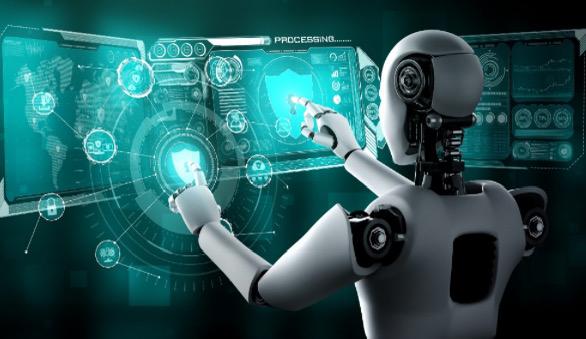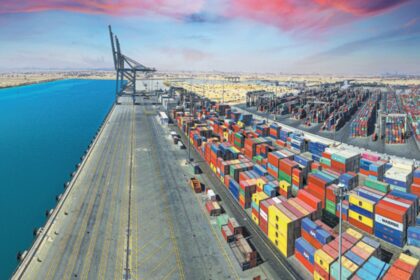Artificial intelligence (AI) has become increasingly integrated into our daily lives in recent years, often without our knowledge. Many still ignore its effects and how much we depend on it because it has grown so widespread. From dawn to night, much of what we do in our daily lives is powered by AI technology. To begin our day, many of us grab our laptop or cell phone when we get up. In our decision-making, planning, and information-seeking processes, doing so has become instinctive and essential. When we turn on our devices, we immediately plug in AI features like face ID and picture recognition.
Understanding AI and Its Necessity
AI is the knowledge of machines, as opposed to the natural intelligence exhibited by people and animals. The human brain is the most complicated organ because it can receive information from the outside environment and regulate every bodily function. An estimated 100 trillion synapses connect the 86 billion neurones of its brain networks. Neuroscientists are still working to comprehend and fully untangle its implications and potential. Similar to how AI operates fundamentally, humans are constantly changing and learning. Innovation, creativity, knowledge, experience, and human intelligence propel the development of present-day and future machine intelligence technology.
Is AI truly necessary for human society? The answer is dependent. Indeed, if people want to work continuously without breaks and in a more efficient manner, then it is. However, it is not if people are content with a natural lifestyle free from excessive ambitions to subjugate the natural order. The need for continued improvement drives people to seek out new and improved task methods since history demonstrates that people are constantly searching for ways to complete tasks more quickly, easily, effectively, and conveniently. When humans first evolved, they realised that tools might help them with many problems in their everyday lives. With the use of these tools, they were able to accomplish tasks more effectively, more quickly, and more intelligently. The driving force for human advancement is the ability to invent new things. Thanks mainly to technology, we live a simpler and more relaxed existence. Human development depends on the instruments that human society has utilised from the dawn of civilisation. Because they have modern machines to work for them, people in the 21st century do not have to labour as hard as their predecessors did.
AI’s Impact on Healthcare
Furthermore, modern artificial intelligence is also making inroads into the healthcare sector by helping physicians diagnose, identify the causes of illnesses, provide different treatment options, perform surgeries, and determine whether a condition is imminent. In a recent trial, Washington’s Children’s National Medical Centre doctors successfully performed surgery using an autonomous robot. When the researchers saw the robot do soft-tissue surgery and sew a pig’s colon together, they said the robot performed the procedure more accurately than a human surgeon. It shows that the limits of present minimally invasive surgical techniques may be addressed by robotically assisted surgery, which can also improve the skills of doctors who conduct open surgery. The more tired a worker is, the more likely they are to make mistakes, which are unavoidable and frequently expensive. On the other hand, AI technology is immune to emotional distraction and tiredness. Errors are avoided, and the task may be completed more quickly and precisely.
AI’s Role in Society and Business
AI greatly influences industry and is changing practically every facet of society and human existence. People like Elon Musk and Stephen Hawking were alarmed by AI’s growing influence on businesses and individuals. They believe that when AI achieves its full potential in the future, it might become unmanageable for humans. Increased use and reliance on AI will inevitably reduce the capacity of the human brain to reason. As a result, people’s ability to think is gradually diminished. Humans become increasingly artificial as a result of losing their intellect. Furthermore, our constant engagement with technology has forced us to think like incomprehensible algorithms.
Over-Reliance on AI: Risks and Consequences
Another problem is that people in practically every aspect of life depend on AI technology. Unquestionably, technology has made life simpler and raised living conditions, but it has also had a terrible effect on human existence and made people sluggish and irritable. As it gets deeply involved in each task, such as organising and planning, it will progressively deprive the human brain of consideration and mental effort. Over-reliance on AI might deteriorate professional skills. AI is diminishing human autonomy, substituting its decisions for ours, and making us lazy in many areas. One argument is that AI diminishes human autonomy and responsibility, which has a cascading impact on contentment and pleasure.
Conclusion: Balancing AI’s Benefits and Risks
To sum up, artificial intelligence has transformed human existence by providing previously unheard-of levels of ease, effectiveness, and creativity. Its incorporation into various fields, including healthcare, business, and daily life, has enhanced results and made chores easier, underscoring AI’s limitless potential. However, there are serious drawbacks to this technical breakthrough. Over-reliance on AI might undermine professional abilities, reduce critical thinking, and endanger human autonomy. Even if AI might solve many of today’s issues, if it develops uncontrolled, it may reduce people’s ability to make decisions independently and cause them to become disconnected from their essential human experiences.
















